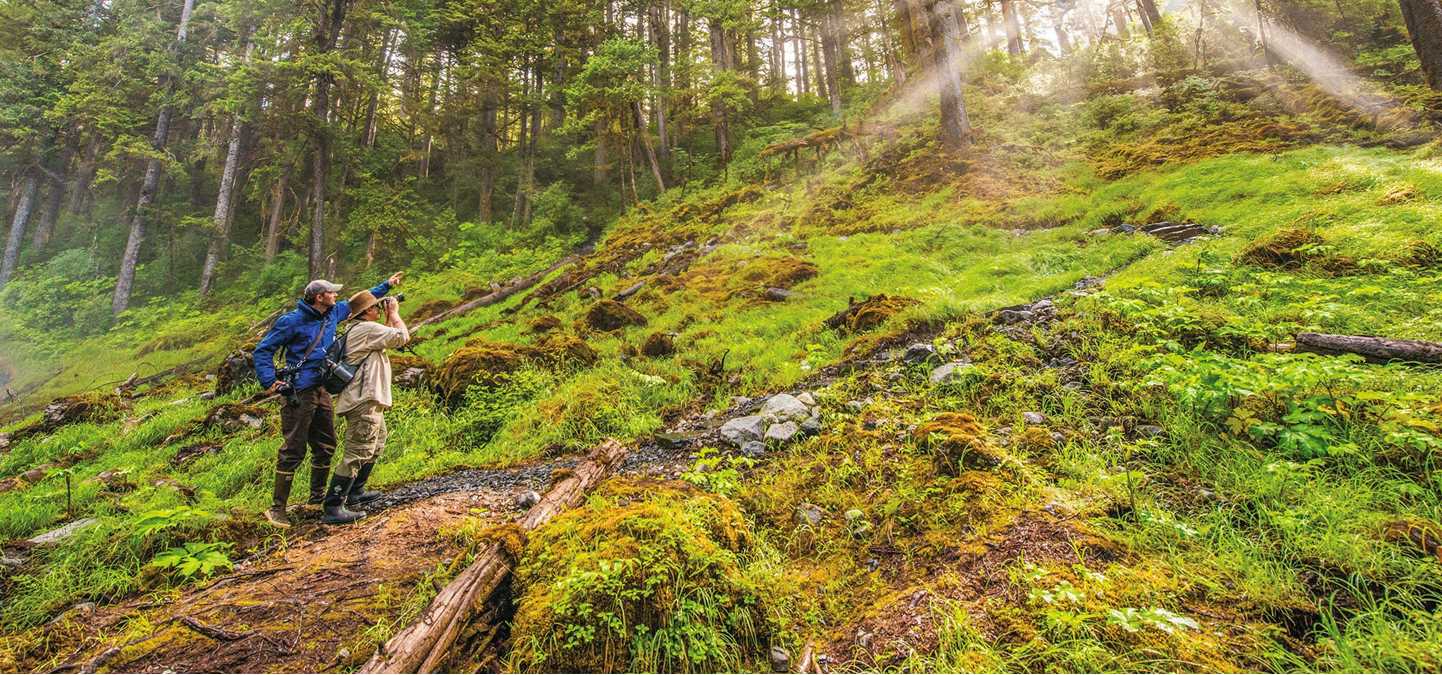Naturalists
Naturalists
More than just nature guides, our naturalists are engaging storytellers, each with their own rich experiences and fascinating tales from the field. They are as different as their specialties—which range from geology to zoology—and their knowledge about the natural world runs wide and deep. And while they are schooled in science, they have a knack for describing species and natural phenomena in relatable ways, whether explaining the behavior of a brown bear to an elementary school student or describing the physics of glacier formation to a Ph.D. holder. They know their destination inside and out and, often, they call it home.
Our naturalists are also inspiring travel companions who participate fully in the expedition, leading excursions and also joining guests at meals or in the lounge over drinks. Each team is made of naturalists with a range of specialties, so you can set out with a botanist on a morning hike and then take an afternoon Zodiac ride with a marine biologist. Or if a naturalist shares a particular passion of yours—say birding or geology—you can choose to join the excursions they lead. Our guests have been known to book another trip just to travel with a particular naturalist again.
More than just nature guides, our naturalists are engaging storytellers, each with their own rich experiences and fascinating tales from the field. They are as different as their specialties—which range from geology to zoology—and their knowledge about the natural world runs wide and deep. And while they are schooled in science, they have a knack for describing species and natural phenomena in relatable ways, whether explaining the behavior of a brown bear to an elementary school student or describing the physics of glacier formation to a Ph.D. holder. They know their destination inside and out and, often, they call it home....
Read more
Meet our Naturalists
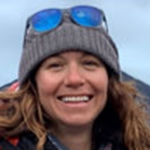
Jessica Farrer
Jessica has dedicated nearly 20 years to marine mammal research, with experience spanning diverse ecosystems. She has worked as a fisheries observer aboard commercial fishing vessels in the Bering Sea and contributed to marine mammal studies across Alaska, Hawaii, Washington State, the Galapagos, and Antarctica. Notably, she spent four seasons at a remote sea-ice camp near McMurdo Station, Antarctica, studying Weddell seals as part of the U.S. Antarctic Program. Currently, Jessica serves as the Research Director for The Whale Museum in Friday Harbor, WA. In this role, she oversees several conservation programs aimed at promoting marine mammal conservation in the Salish Sea through education and research. Her work with the urbanized marine mammals of the Pacific Northwest contrasts sharply with the stark, isolated expanses of Antarctica and the marine mammals that call this region home. Antarctica first captivated her in 2009 during her initial field season at McMurdo Station. Since then, she has returned to the Ice almost every year. Jessica is the unmanned aerial systems pilot for SR3's project, which monitors cetacean health around the Antarctic Peninsula. Her research focuses on the use of genomic techniques and non-invasive sampling to enhance our understanding of Antarctic marine predator ecology. She aims to expand knowledge of this relatively pristine ecosystem and apply lessons from the Pacific Northwest to advocate for early conservation measures in response to climate change and increasing human impact.
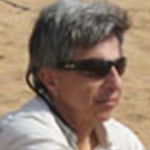
Salvador Cazar
Salvador Cazar studied biology at the Universidad Nacional Del Sur, Bahía Blanca, in Argentina and at the Catholic University of Ecuador. Between 1988 and 1994, Salvador worked as a naturalist and tour leader for several national and international tour operators, leading groups of visitors across the Ecuadorian rain forest, Andean forest, and to Galapagos. From 1995 to 2011, he performed a number of functions at the public and private level for national and international organizations. Among others, he acted as the regional coordinator of the Feasibility Study for the Environmental Management Program for the Gal á pagos Islands financed by the Inter-American Development Bank; coordinator of the Ecuadorian Permanent Commission for the Gal á pagos Islands; consultant for the Project "Support to the Global Management Plan for Tourism Development and Ecological Conservation of Gal á pagos National Park and Galapagos Marine Reserve" funded by the UNDP; executive director of the Ecuadorian Association of Ecotourism; instructor of environmental interpretation for the Gal á pagos National Park and KAPAWI Ecolodge & Reserve; coordinator of the Sustainable Tourism Program of Fundación ESQUEL–Ecuador; Conservation International–Ecuador sustainable tourism specialist; and Conservation International–Ecuador socio economic coordinator. At the moment, Salvador is working as a naturalist taking groups of visitors across Gal á pagos and continental Ecuador and providing technical assistance on different aspects of responsible travel to NGO´s, government organizations and businesses.
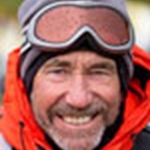
John Pailthorpe
John spent the early years of his life in London, before an inspirational teacher took him to the highlands of Scotland on a school adventure trip. From then on the natural world has been his passion. After teacher training in Bangor, North Wales, John began a thirty-year career in outdoor education centres and schools, teaching and leading children and adults in such pursuits as mountaineering, rock climbing, kayaking, and sailing throughout the U.K. and Europe. During this time John took time out to be part of six polar scientific expeditions, as a field assistant/guide. Two of these were with the British Antarctic Survey; the first a two-month field expedition to the Eklund Islands on the Antarctic Peninsula; the second, eight months as part of a king penguin and elephant seal study on South Georgia. He served as a boat skipper/field guide on a geological expedition to the northwest of Svalbard. More recently, he took part in three expeditions to the Greenland ice cap for the Scott Polar Research Institute of Cambridge, as part of the European Space Agency's “Cryosat” project. John is well aware that his career, and the wonderful experiences it has included, all began with one special teacher. With this in mind, he likes nothing more than to pass on his enthusiasm for nature and all things outdoors, with the intention of promoting an awareness and caring attitude towards the natural environment.
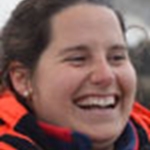
Madalena Patacho
Madalena was born and raised in Portugal. Her childhood was spent in Belem, surrounded by Portuguese maritime history, always dreaming about exploring the oceans. Her love for nature has led her to study biology and later to take a Master’s in management of natural resources, specialized in ecotourism. She has lived on Príncipe Island, off the west coast of Africa, working with local communities on a responsible tourism project. She is inspired by the principles of ecotourism and is always looking for the best ways to contribute and leave a positive footprint everywhere. To travel around the world is her biggest passion, connecting with different cultures, exploring the wilderness and having a taste of local genuine experiences. Following this passion has allowed her to extensively explore Latin America, Asia, Europe, Africa and the Arctic. Her knowledge and enthusiastic storyteller talks have taken her to several universities, lecturing about ecotourism, sustainable tourism and nature conservation. When she is not exploring the world, she dedicates her time to Ocean literacy and environmental education working as a marine educator with a variety of audiences raising awareness on ocean conservation.
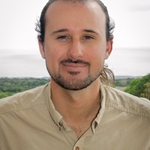
Benjamin Ayala
Ben is a German-Ecuadorian naturalist guide who grew up on San Cristobal, the eastern-most island of the Galápagos Archipelago, home to the political capital of the province. He was raised on the small Pacific island by his mother, herself a naturalist guide, but would frequently travel to Germany to visit his mother’s family there. This dual upbringing gave Ben a passion for travel to faraway places to explore both the natural world and different cultures. The more he travels, however, the more he comes to appreciate and cherish his home islands and their unique and magical natural environment. He currently splits his time between working as a Galápagos National Park naturalist guide and an ocean wildlife conservationist. His work as a conservationist with international NGOs has led him on adventures as varied as confronting the whale poachers of the Antarctic coast to collect illegal drift nets in the high seas. Defending the oceans, from which his home, the Galápagos Islands, were born and depend, is his great passion. In his free time, he enjoys photography, free diving, sailing, and surfing.
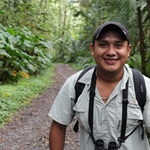
José Pérez
José Pérez was born in Panama City and grew up in the province of Coclé in the small town of El Valle de Anton; a picturesque village located in the caldera of the world's second largest volcano. From a young age he felt a deep affinity for nature, joining his grandfather and father for long walks to their farm where they would identify plants, insects, and animals. José finished secondary education in the IPT El Valle where he obtained his Bachelor of Accounting, but his interest in traveling and love of nature led him to start a career in tourism. José has 16 years of experience as a tour guide, working for five years at Canopy Tower as birding guide. He then started his career as a freelance guide leading groups in different protected areas throughout Panama and Costa Rica, working with several tour operators: including local and international companies such as Lindblad & National Geographic Expeditions. Besides being an expert birdwatcher, he has an extensive knowledge of Panama Canal history, is an experienced certified diver working with Panama Marine Adventure for almost five years.
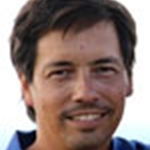
Alex Searle
Born in Chile and raised in Argentina, Alex spent his childhood living in different parts of these countries and getting to know the local cultures. Alex studied Journalism at the University of Chile and did post graduate studies at UBC in Vancouver, Canada. Working as a Chilean TV producer for years, Alex worked in the news department doing research, and produced a successful late night show as well as a wildlife show that did stories all over America. Since he was a kid his life’s dream was to visit Easter Island, or Rapa Nui in the local language. He visited during his university years, together with his wife, Terangi, who was born on this unique Pacific island. Alex has worked for years with Lindblad Expeditions in Easter Island, and also works as a guide all along Chile. An avid diver and photographer, he has contributed his photos to books about Easter Island. His love for the cultural past and present of Rapa Nui, Polynesia, and other areas of South America, as well as his passion for wildlife and nature, make him a passionate guide. He is excited to share his understanding and knowledge with fellow travelers.
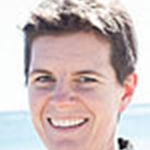
Deb Goodwin
Passionate about creating opportunities for explorers of all ages to engage with wild places, Deb embraces the power of immersive experiences to inspire curiosity and conservation. Extended backcountry expeditions as a teen jumpstarted this commitment and continue to motivate her travels. No matter the destination, she observes the natural environment with a detective’s mindset, seeking to understand how local geology, weather, ecological processes, and human history together shape the coastal land- and seascape. Deb studied earth science at Carleton College and holds graduate degrees in ecosystem biology, oceanography, and experiential education. Over the last two decades, she has taught and led science projects in locations around the world, complemented by intervals with the National Park Service and wilderness-based leadership development programs. As Associate Professor of Oceanography and Chief Scientist at Sea Education Association, Deb takes undergraduates on multi-month voyages aboard sailing research vessels, training them in scientific techniques, navigation, leadership, and environmental and cultural stewardship. Interested particularly in documenting spatial/temporal changes, Deb leverages long-term datasets, remote sensing, and field observations to explore marine dynamics ranging from offshore plastic pollution to the coastal ice-ocean interface. She is also a member of the Expedition Science Committee, reviewing proposals and coordinating logistics to support visiting researchers joining Lindblad Expeditions/National Geographic voyages.
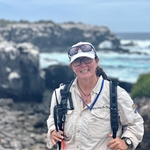
Karina López
Karina López was born in Guayaquil, Ecuador where she received her bachelor’s degree in Tourism and Hospitality, a second technical degree as a Professional Guide of Ecuador, and a third diploma in French language at the Alliance Francaise. She moved to San Cristóbal Island in 1996 and has divided her time between there and the mainland for nearly two decades. Her deep passion for nature, birdwatching, and marine life led her to become a certified national park naturalist in 1999, and since then she has guided in the Galápagos Islands and also led trips in the Amazon rain forest and throughout the Sacred Valley in Peru. Equal to her passion for guiding on land is her love for guiding underwater, and in 2001 she became certified as a dive master naturalist for the Marine Reserve of Galápagos. She loves to help her guests have the magical experience of swimming with sea turtles, frolicking with playful sea lions, and searching for the elusive but adorable Galápagos penguins. When not leading groups in her beloved islands, she can be found exploring her other passions of international travel, photography, creative writing, cooking traditional Ecuadorian cuisine, and playing soccer.
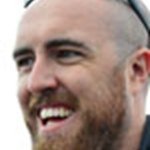
Conor Ryan
For as long as he can remember, Conor has always been preoccupied with the natural world, from the whales to the fungi. For most of his life he has been an islander: growing up in Cobh, Ireland and settling down in Tobermory in the Hebrides, Scotland. When not on Lindblad ships, Conor likes to explore the Hebrides by sea-kayak and search the Atlantic rainforests and shorelines for edible mushrooms and seaweeds. Conor completed his PhD in Galway on the ecology and population structure of baleen whales in the Celtic Sea and Cape Verde, using stable isotope analysis, molecular genetics and organochlorine contaminants. During this time, he realized that the lab was not his natural habitat, so he now works as a research field scientist, using passive acoustics and line transect surveys to map whale distribution and estimate population sizes. He holds two honorary research fellowships: at the Scottish Association of Marine Science, and on the sailing Research Vessel Song of the Whale. Conor enjoys writing about whale conservation, historical ecology and animal welfare in science. He has published over 50 peer-reviewed articles and book chapters. He lives for sea-watching: staring at the ocean to see what marvels it bestows.
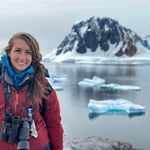
Julia Huggins
Julia is an earth-systems scientist who studies how the interactions between living and non-living parts of Earth’s environments can shape ecosystems and global climate. She is based in Squamish, BC, Canada, and through her research collaborations she also works at research laboratories in Europe and spends time on open-ocean scientific research vessels around the world. Julia’s passion for environmental science and education started at a young age when she grew up exploring the mountains of Wyoming and the seacoast of New England. Julia studied biology at Lewis & Clark College in Portland, OR, and spent several years researching how symbiotic relationships between trees, mushrooms, and soil microbes drive ecosystem-level processes. This work brought her to remote corners of the world, including New Zealand, Patagonia, and Alaska. Julia completed her Ph.D. at the University of British Columbia in Vancouver, BC, Canada, where she studied how chemical processes carried out by tiny microorganisms regulate the health of marine environments. For this research, Julia organized oceanography trips in British Columbia and month-long research expeditions in the Pacific Ocean off the coasts of Mexico and Chile. Throughout her research career, Julia has combined her love of the outdoors with her work as a science educator. Julia has worked as a naturalist and backcountry guide for more than 10 years throughout the Pacific Northwest. She is also a co-founder of the BOAT non-profit that supports access to outdoor education, and she helps make science fun and engaging as a co-host of the Nerdy About Nature podcast. She believes deeply in the power of fun, accessible, place-based education; sharing the things that inspire her about the natural world is the root of her motivation for research and science outreach.
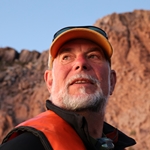
Jeff Campbell
Jeff Campbell fell in love with the ocean while attending boatbuilding school in Eastport, Maine. Since completing his MS in Marine and Estuarine Science at Western Washington University, he has worked for NOAA documenting the ecological impacts of transoceanic fiber-optic cable; the Washington Department of Fish & Wildlife developing an aging method for sixgill sharks; the Lummi Tribe as a Harvest Biologist; Northwest Indian College teaching Fisheries and Wildlife Biology, and as a volunteer for the Whatcom County Marine Mammal Stranding Network. He has been involved in research developing mitigation methods for harmful algae blooms, sterilization methods for oil tanker ballast water, and techniques for screening refinery effluent for harmful ecological effects. He also served as Principle Director on a USDA-funded grant using student interns to study the impact of nutrient-rich run-off on seasonal dead-zones in Bellingham Bay. Jeff is passionate about the marine environment, particularly the northeast Pacific, and believes that the key to preserving this fragile biome is lighting the spark in others by sharing his knowledge on the interconnectedness of seemingly disparate systems. He is particularly interested in the effects of ocean acidification on the larval stages of mollusk, and arthropod larvae. Summers for the last three years have found him driving expedition landing craft and sharing the joys of whale watching with guests. A Lummi Island, Washington resident for more than 18 years, Jeff lives with his wife Penny, who has been a marine naturalist on whale watch boats in the Salish Sea for many years, and their cat, Boo.
Showing 12 of 164

